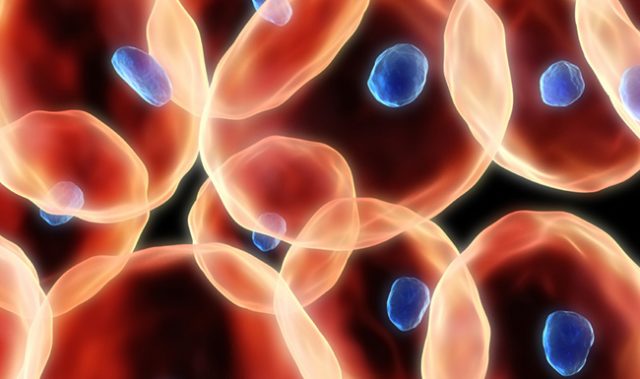
AsianScientist (Oct. 2, 2014) – Scientists have identified a new role for B cells in autoimmunity: hyper-activating another class of cells known as natural killer T (NKT cells). Their research, published in the journal Cell Reports, could lead to novel lipid-based approaches to treating autoimmunity.
NKT cells are a special population of immune cells which play an important role in the body’s response to lipid antigens. In particular, they respond to antibody-producing cells (B cells) which display lipid antigens on their surface, held in place by a molecule known as CD1d.
“Although the interaction with NKT cells is known to be required for B cell antibody production, whether it also influences the activation and survival of NKT cells remains largely unexplored,” said first author of the study, Dr. Andy Tan from the Bioprocessing Technology Institute (BTI) under Singapore’s Agency for Science, Technology and Research (A*STAR).
Previous studies had shown that NKT cells are numerically reduced in autoimmune mice and humans. Therefore, the authors investigated what would happen to the NKT cells in mice which lacked the FAS receptor specifically in B cells, a genetic background that mimics autoimmunity.
They found that mice which had autoimmune B cells lacking FAS had fewer numbers of NKT cells and that the remaining NKT cells were hyper-activated, as seen by the expression of activation markers on the cell surface and the production of cytokines.
“This in turn led to the hypothesis that since B cells in the mice were rendered autoimmune by the loss of FAS, perhaps CD1d-mediated presentation of self-lipids by autoimmune B cells to NKT cells over-activated them and caused their death,” Dr. Tan explained.
“To ascertain if this is the case, we engineered autoimmune mice to lack expression of CD1d specifically in B cells and found that—consistent with our hypothesis—autoimmune mice in which CD1d was genetically ablated recovered some, although not all, of their NKT cells.”
“Since ablation of CD1d in autoimmune B cells ameliorated NKT cell defects and partially restored their numbers, this suggests that inappropriate presentation of CD1d-restricted self-lipids by autoimmune B cells represents one possible mechanism to account for the depletion of NKT cells.”
The research team then went on to identify which self-lipids might be responsible for deleterious effects on NKT cells, performing lipidomic profiling by liquid chromatography-mass spectrometry. They found that autoimmune B cells had an altered lipid profile, with aberrant accumulation of certain self-lipids which correlated with the reduced expression of a lipid processing enzyme known as lysosomal α-galactosidase A.
These findings unveil a critical link between autoimmunity, the B cell lipid profile and the maintenance of NKT cells, and highlight an essential homeostatic function of B cells beyond antibody production.
“Our study suggests that one possible therapeutic strategy to rectify NKT cell defects is to target the lipid processing enzymes or pathways controlling the biosynthesis of the altered lipid species in autoimmune B cells. Further work to take this forward includes purifying self-lipids from autoimmune B cells and assessing their ability to activate NKT cells in vitro,” Dr. Tan told Asian Scientist Magazine.
The article can be found at: Tan et al. (2014) Aberrant Presentation of Self-Lipids by Autoimmune B Cells Depletes Peripheral iNKT Cells.
——-
Copyright: Asian Scientist Magazine; Photo: A*STAR.
Disclaimer: This article does not necessarily reflect the views of AsianScientist or its staff.












